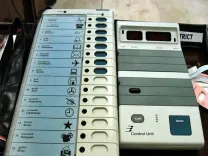Why Are New York and Washington on High Alert After US Strikes on Iranian Nuclear Facilities?

Synopsis
Key Takeaways
- Increased security measures in major cities like New York and Washington.
- Authorities are vigilant for potential retaliatory threats.
- US military strikes targeted Iranian nuclear sites.
- Coordination among law enforcement agencies is crucial for public safety.
- Continued monitoring of the situation is essential for preparedness.
New York, June 22 (NationPress) Following the recent US military strikes on Iranian nuclear sites, authorities in the United States are exercising increased vigilance. Major cities, including New York and Washington, are enhancing security measures at sensitive locations.
The New York Police Department (NYPD) has declared a heightened presence around religious, cultural, and diplomatic areas throughout the city.
In a post on X, the department stated, "We are closely monitoring the developments in Iran."
"As a precautionary measure, we are deploying additional resources to sensitive sites across NYC and collaborating with federal partners. We will continue to assess any potential impacts on New York City," it added.
The NYPD's actions come amid rising fears of retaliatory threats or isolated incidents fueled by the intensifying conflict between Iran and the United States.
In the capital, the Metropolitan Police Department (MPD) released a similar alert.
"The Metropolitan Police Department is closely observing the situation in Iran. We are actively coordinating with local, state, and federal law enforcement to share information and monitor intelligence, aiming to protect residents, businesses, and visitors in the District of Columbia," the statement noted.
While the MPD indicated that there are currently "no known threats to the District," it confirmed an elevated police presence, particularly around religious institutions.
"We urge the public to remain vigilant and assist in keeping our community safe," the statement concluded.
These coordinated precautionary measures highlight the increasing concern among US security agencies regarding the potential fallout from the military engagement in the Middle East.
President Trump announced that the US had targeted three nuclear facilities in Iran, warning Tehran of further precise strikes if it did not de-escalate its confrontation with Israel. The struck locations reportedly include the highly secured Fordow, Natanz, and Esfahan nuclear sites.
During a media briefing shortly after the strikes on Saturday (US time), Trump remarked, "I want to commend the brave American patriots who piloted those extraordinary aircraft tonight, along with all of the United States military for an operation like none we have seen in decades. I hope we will no longer need such services. I truly hope for peace."
"This cannot continue. Iran faces either peace or a tragedy far worse than what we have seen in the last eight days. Remember, many targets remain untouched."
"This was by far the most challenging and potentially deadly operation. However, if peace does not arrive promptly, we will pursue those additional targets with precision, speed, and skill. Most can be neutralized within minutes. No military globally could replicate what we achieved tonight, not even close," he emphasized.
The US President asserted that these strikes aimed to dismantle Iran's nuclear enrichment capability and eliminate the nuclear threat posed by the world's leading state sponsor of terror.
Despite extensive diplomatic efforts to renegotiate a nuclear agreement with Tehran—following the US withdrawal from the 2015 deal in 2018—Trump has now fully endorsed Israel's military actions against Iran's nuclear infrastructure and senior military leaders, a campaign initiated just over a week ago.








